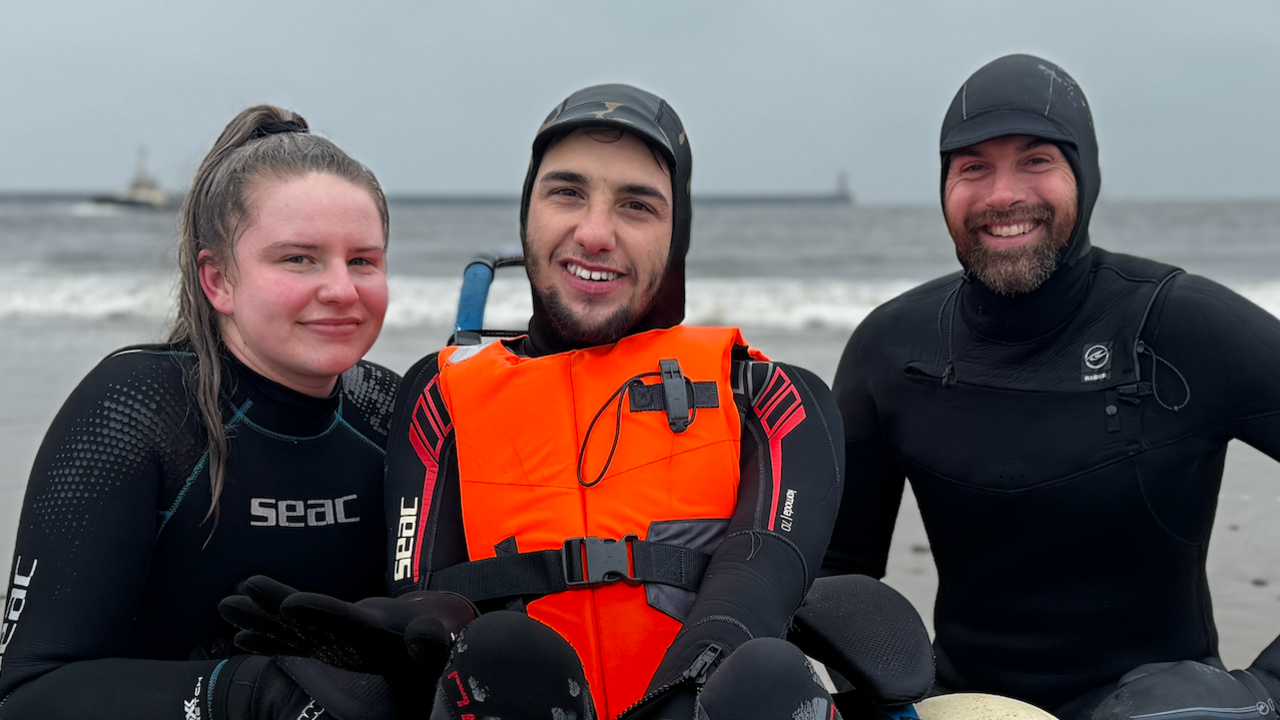Surfer 'never happier' as benefits of sport uncovered

Julian Roe has been surfing since he was 18 years old
- Published
A former paratrooper says he has "never been happier" now that he surfs several times a week.
Julian Roe's love of surfing reflects the findings of the biggest survey of UK surfers to be carried out in more than a decade.
The University of Bristol, in partnership with The Wave, published the UK Surfing and Health Report, external on Saturday, which highlighted a positive relationship between increased frequency of surfing and better mental wellbeing.
Mr Roe, 60, from Bristol, said: "To say it has changed my later life is an understatement."
He added: "I have never been happier, mentally or physically since I was a young lieutenant in the army.
"I’m always smiling, and the joy I feel for the rest of the day after being at The Wave has made me a much nicer person to be around according to my wife.”
The report examined why people surf and the sport's impact.

The Wave, an inland surfing attraction in Easter Compton, opened in 2019
Mr Roe, who surfs three times a week, served as a paratrooper in Aldershot and saw active service in Northern Ireland.
He said he was in the army for about seven years, before joining the Met Police.
"The only barrier to me surfing more is my physical capability, I have some mobility issues now, after pushing my body hard in the Paras," he added.
Mr Roe first surfed when he was 18, but said he took a 12-year-break from the sport before coming to The Wave when it opened in 2019.
"I was on a very old board from when I was 10 years younger and three stone lighter," he said.
"I got smashed for two months until I got my first green wave again - that feeling changed everything for me."
'Blue health'
In addition to its positive impact on mental health, the biggest motivations for surfing included fun and improved performance.
The report also examined surf-related spending and barriers to surfing, with almost 1,350 people taking part in the survey.
Barriers to the sport included the weather, work and study commitments, travel time, and pollution.
Survey participants said closer facilities, reduced cost, and people to surf with, would increase participation in the sport.
The report has called on more research to understand the strength and impact of surfing on mental health and the results will be investigated further in a PhD at the university this autumn.
It is hoped the PhD will add to research in "blue health", evidence supporting the idea that being in or near water benefits human health.
Dr Joey Murphy, lecturer in physical activity and public health at the University of Bristol, said: "The data clearly indicates that making surfing accessible to more people has the potential to support both population health and the UK economy."
Follow BBC Bristol on Facebook, external, X, external, and Instagram, external. Send your story ideas to us on email or via WhatsApp on 0800 313 4630.
Related topics
- Published11 March 2024

- Published19 March 2024

- Published24 April 2024
